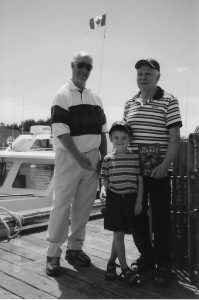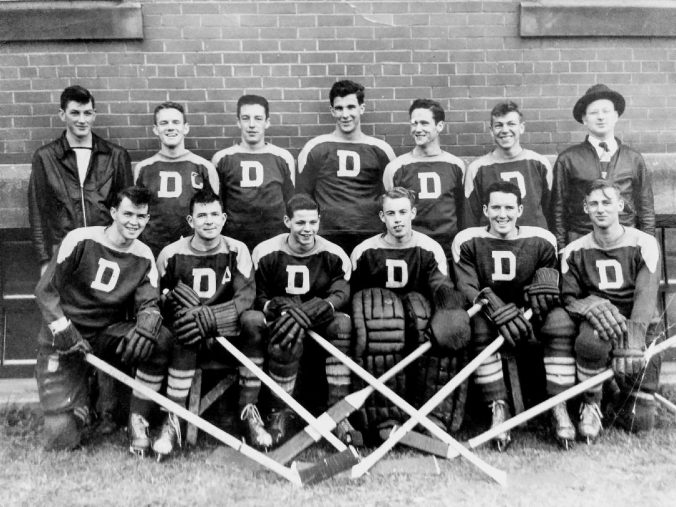People who have met my father might suspect that he has always lived a simple life…living and fishing on the North Shore of Prince Edward Island. However, during the 1950s he spent ten years serving in the Royal Canadian Navy. This time in the military gave him the chance to travel the world and have many unique experiences and adventures. One of his most memorable experiences was to spend a year in Canada’s Arctic.
After several years serving as a wireless radio operator, mainly aboard aircraft carriers, Joe was presented with an intriguing opportunity. The military was looking for servicemen to volunteer to man a weather station on a small island in Canada’s Arctic region. As a young man eager for adventure, Joe signed up and prepared to travel to Padloping Island, where he would be stationed for the next twelve months.
Padloping Island is a small island located off the eastern coast of Baffin Island in the Davis Strait, just across from Greenland. It is only 4-6 km long and approximately 1-2 km wide. It is currently uninhabited, but in the 1950s it was home to a small Inuit community of about 30-40 people, as well as a weather station. The weather station was an American Air Force weather station that had been established during wartime in the 1940s. The U.S. military had had a crew on site for the previous twelve months and Joe and his fellow Canadian servicemen were taking over command for the next year.
The island itself is located past the tree line, and consists of mostly rocky terrain, with high cliffs jutting out into the sea. It is in an area of the Arctic that has an extremely cold climate. This brings very long, cold winters and foggy, cloudy summers. Being so far north, Padloping Island experiences the polar night (24 hours of darkness) in winter and the midnight sun (24 hours of light) in summer. Weather is extremely unpredictable and snow can occur at any time of the year, although it is less likely in the summer months. Sea ice surrounds it much of the year, which makes it an active area for polar bears, seals, walruses, whales and other marine life.
Due to the remote location and lack of infrastructure on the island, there was no airstrip, so they had to be dropped off by ship. The Canadian Navy took them by plane from Churchill, Manitoba to Goose Bay, Labrador. From there, they travelled by ship with the American military to Padloping Island. With them came a year’s worth of food, medicine and other supplies. Before being accepted for the mission, everyone had to undergo medical and dental checks, as they would have no access to doctors or dentists for the next year.
The base itself was sparse and rudimental and consisted of only a few buildings, each with a distinct purpose. The main building housed the work area with all their instruments, equipment and radios. There was also a sleeping barracks and a recreation room with a pool table. Food supplies were kept in a separate storage building. A rope was tied between the buildings, in case you got caught in a blizzard, which could come up out of nowhere.
At one point, the food supply building caught fire and the building was lost along with their year’s supply of provisions. After that, they had to get regular airdrops containing food and supplies. The one plus of this unfortunate situation was that they could now make specific requests to be included in the air drops. Joe once requested a quart of rum. Some inventive soul had the forethought to stuff the rum into a loaf of bread to cushion the impact when it was dropped from the plane. He is happy to report it was delivered intact.
Their daily work involved sending up weather balloons and pibals to collect data such as wind speed and atmospheric pressure. They would then send their reports to the Canadian Forces base in Goose Bay and to the Americans in Greenland. These measurements would provide the data which would be used to create weather forecasts in a time before satellites and computers.
Everyday life was much more laid back and relaxed than regular workdays in the military. Uniforms were not required to be worn, so the men enjoyed working in their “civies.” Shaving, which was usually mandatory, was also not required. Many wooly beards and mustaches appeared long before “Movember” became a thing. My father claims that this casual atmosphere was one of the biggest perks of this assignment.
There wasn’t much to occupy a mind or body during down time. There was no television so they spent their time playing pool, playing cards, reading, or hiking. The base also had a pet skunk, who was a great distraction and the unofficial mascot of the weather station. The time was very long, which was only intensified by the long, dark days and the harsh, unpredictable weather. The isolation was the toughest part of the assignment. One crew member could not deal with this isolation, and had to be airlifted out.
Contacting family and loved ones was a complicated and lengthy process. Messages home had to be first sent through an American ham radio operator in the U.S., who would then transcribe a letter and send it in the mail to the desired recipient. This lack of contact with family and friends only heightened the sense of isolation.
One of my father’s most memorable moments was an occasion where he was invited to go hunting with some men from the local Inuit community. They still used traditional weapons such as harpoons and spears to hunt seals, and were quite excited when my father joined them on the hunt with a military issued rifle. It was these interactions with the local people and the native wildlife and marine life that made his time in the arctic unforgettable.
When the twelve months were up, a ship arrived with a new crew. The outgoing team was pretty excited that their commission was ending and they were leaving the arctic. They received a year’s pay when they landed in Manitoba and a few drinks were had! As Joe made his way across the country, he purchased a car in Ontario, which he drove with his friend to Nova Scotia. Once there ,he applied for and received his first driver’s license. He was allotted some time off for a visit home before going back on duty aboard ship.
Although his assignment in the Arctic came with plenty of hardships and challenges, it was for Joe, one of the most extraordinary periods in his military career and in his life. He got to witness and experience a part of our country that very few people do and it left him with an increased appreciation of the vastness and diversity of this beautiful country we call home.
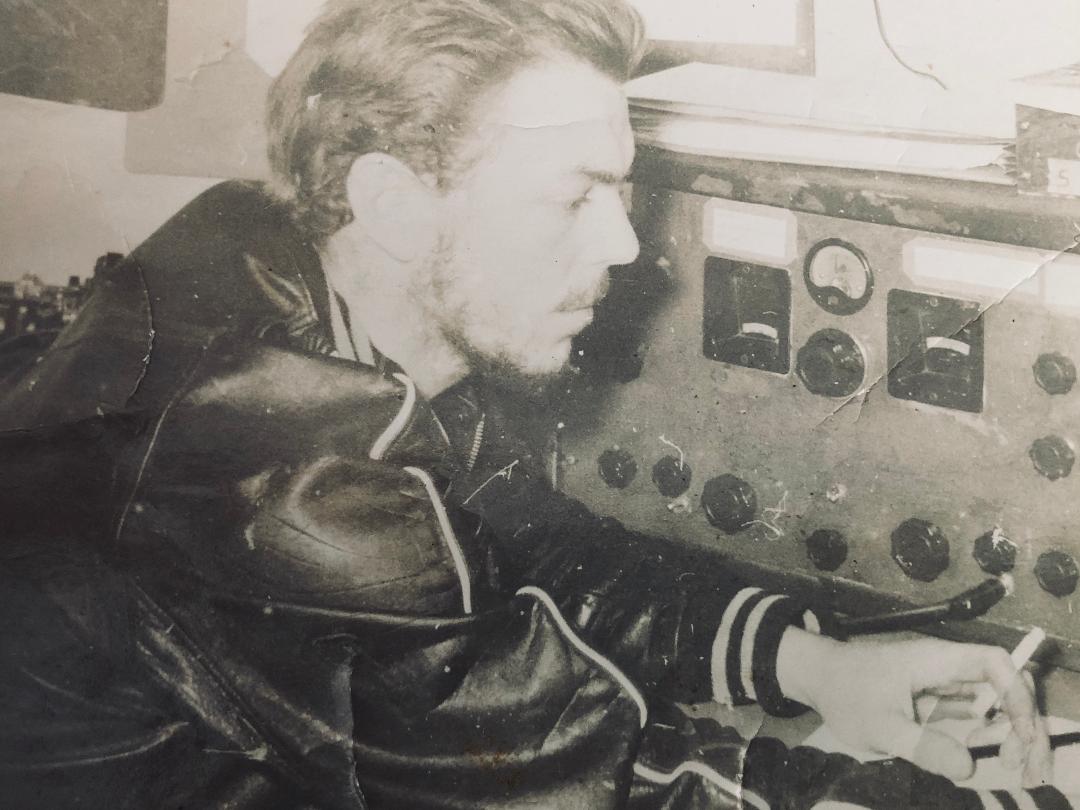

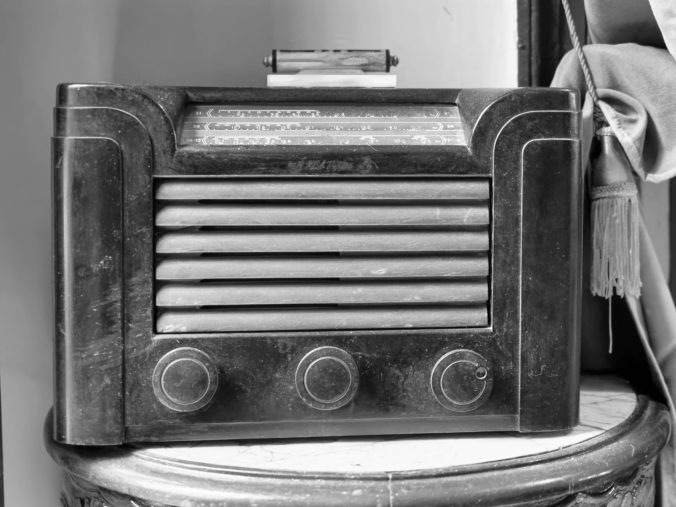
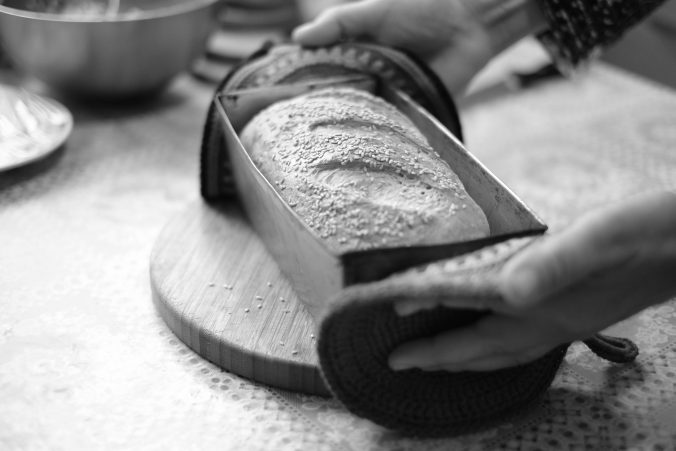
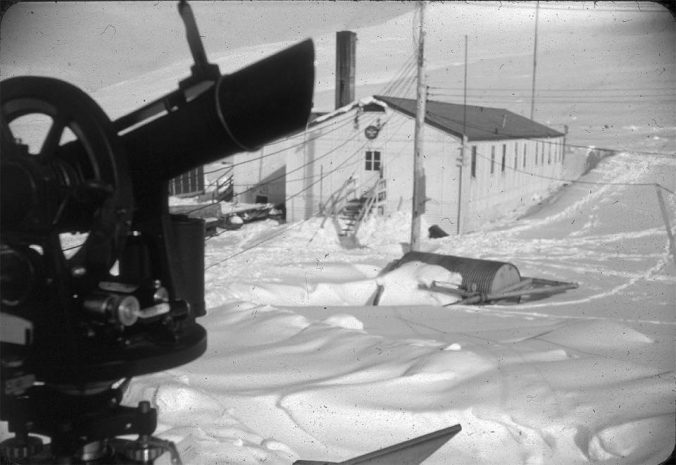

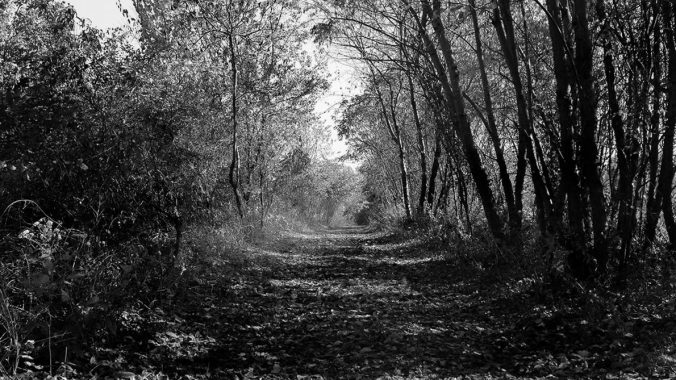
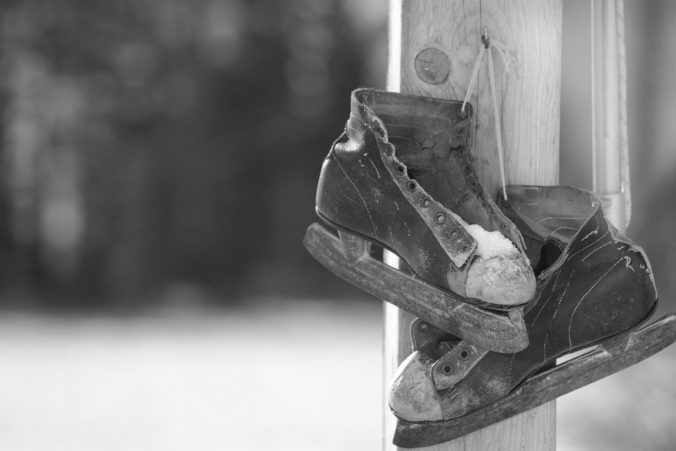
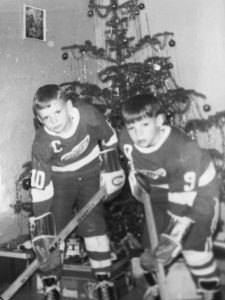 That meeting lasted only a few minutes, but it left a big impression. It cemented Joe’s admiration of Howe, both on and off the ice. Santa Claus must have been a Gordie Howe fan back then too, as that Christmas the boys received matching hockey gear complete with Detroit Red Wings jerseys. My father had not only passed on his love of the game to his two boys, but also his love of Gordie Howe. Two new fans were born.
That meeting lasted only a few minutes, but it left a big impression. It cemented Joe’s admiration of Howe, both on and off the ice. Santa Claus must have been a Gordie Howe fan back then too, as that Christmas the boys received matching hockey gear complete with Detroit Red Wings jerseys. My father had not only passed on his love of the game to his two boys, but also his love of Gordie Howe. Two new fans were born. 